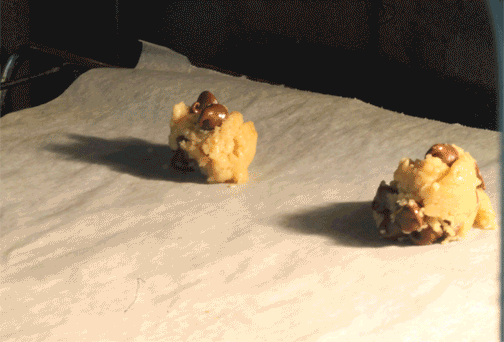sugar is toxic
Replies
-
Wait, I srsly don't give much **** cos I gave up white sugar years ago and i lack sweet tooth syndrome..but..isnt fructose the sugar from fruits? Do correct me if I am wrong, I admit my ignorance in this subject but if I will hear that apples can give me cancer I might flip :P
I lived in this ideal dream of "context and dosage" wisdom.
Gosh, lets not outlaw fruits now.
This thread did break my sarcasm meter repediately tho, so I might be geting trolled now. Again, Ignorance is my line of defense
Fructose is in fruit - however the fibre and other nutrients that are in fruit actually help negate the fructose in the way it's metabolised in the liver. This guy here goes into and explains it a lot better, it's not as simple as that - http://www.youtube.com/watch?v=dBnniua6-oM - He shows how it gets metabolised and due to it being so difficult to do so it produces a lot of bad **** in our bodies.
http://www.youtube.com/watch?v=dBnniua6-oM - He shows how it gets metabolised and due to it being so difficult to do so it produces a lot of bad **** in our bodies.
Fruit is great - the recommended 2 serves a day of fruit is spot on. But it should be eaten raw - so it retains as many nutrients as possible.0 -
Fat, and fat is the sole cause of heart disease...
Other than genetics and lack of exercise?
Yes fat is the major part of it - however most people don't realise that sugar makes fat - where as actual fats can be used by the body much better and easier than sugars. So low fat diets don't always work when there's a lot of sugar involved.0 -
Sorry but if you were to gather together every study done over the last twenty years on the effects of various food items on health, you would not dare put anything in your mouth. The best thing to do is to think moderation in all things, in terms of foods and drink.0
-
As with most things, three words often overlooked in pseudoscience and scaremongering apply: Context. And. Dosage.Sugar is not toxic. It's certainly not good for you in large quantities, but it's nothing to really worry much about.
Water is essential for our survival; however, in excessive quantities it can cause hyponatremia, which can lead to death. Does that mean we should avoid water, or should we instead consider context and dosage and consume it in appropriate quantities?
Dude! Your making way to much sense here with like logic and *kitten*. That can't be right.
Quiet down! ... I want more gifs.

Did someone say sugar?0 -
As with most things, three words often overlooked in pseudoscience and scaremongering apply: Context. And. Dosage.Sugar is not toxic. It's certainly not good for you in large quantities, but it's nothing to really worry much about.
Water is essential for our survival; however, in excessive quantities it can cause hyponatremia, which can lead to death. Does that mean we should avoid water, or should we instead consider context and dosage and consume it in appropriate quantities?
Dude! Your making way to much sense here with like logic and *kitten*. That can't be right.
Quiet down! ... I want more gifs.

Did someone say sugar?
Cruelest gif ever 0
0
This discussion has been closed.
Categories
- All Categories
- 1.4M Health, Wellness and Goals
- 398.2K Introduce Yourself
- 44.7K Getting Started
- 261K Health and Weight Loss
- 176.4K Food and Nutrition
- 47.7K Recipes
- 233K Fitness and Exercise
- 462 Sleep, Mindfulness and Overall Wellness
- 6.5K Goal: Maintaining Weight
- 8.7K Goal: Gaining Weight and Body Building
- 153.5K Motivation and Support
- 8.4K Challenges
- 1.4K Debate Club
- 96.5K Chit-Chat
- 2.6K Fun and Games
- 4.8K MyFitnessPal Information
- 12 News and Announcements
- 21 MyFitnessPal Academy
- 1.6K Feature Suggestions and Ideas
- 3.2K MyFitnessPal Tech Support Questions



